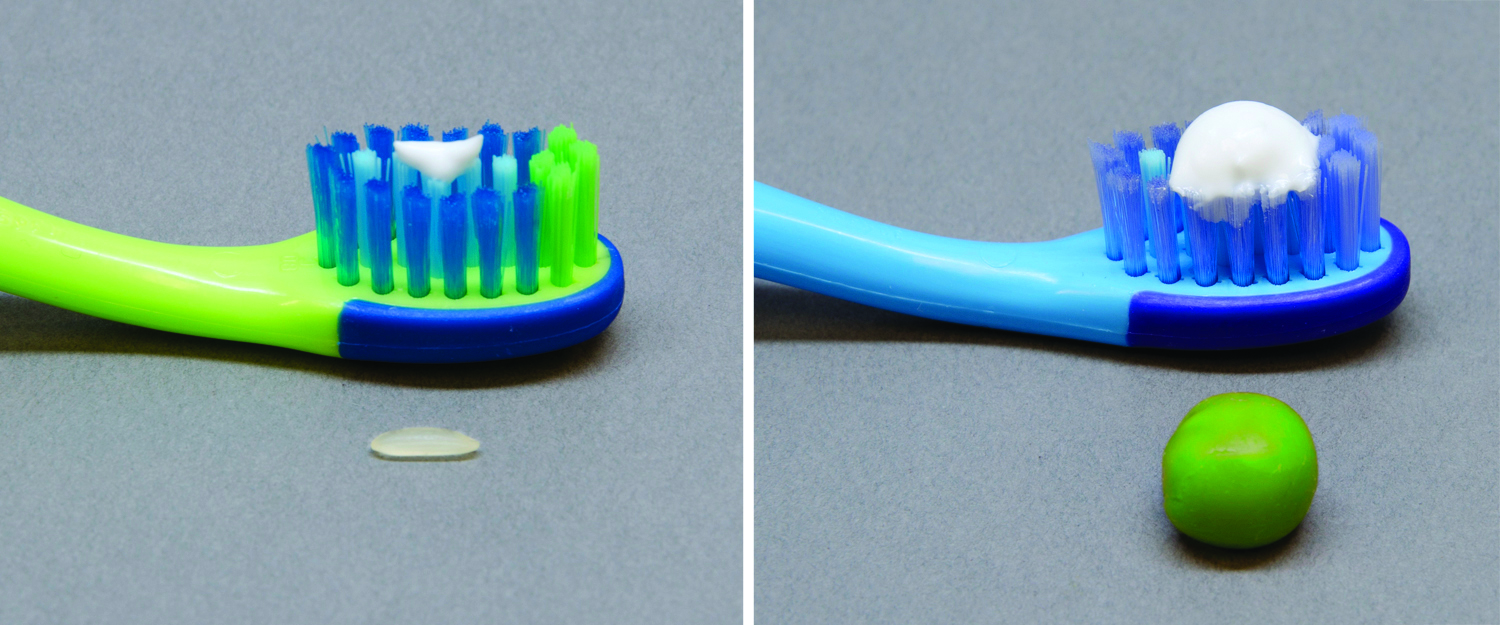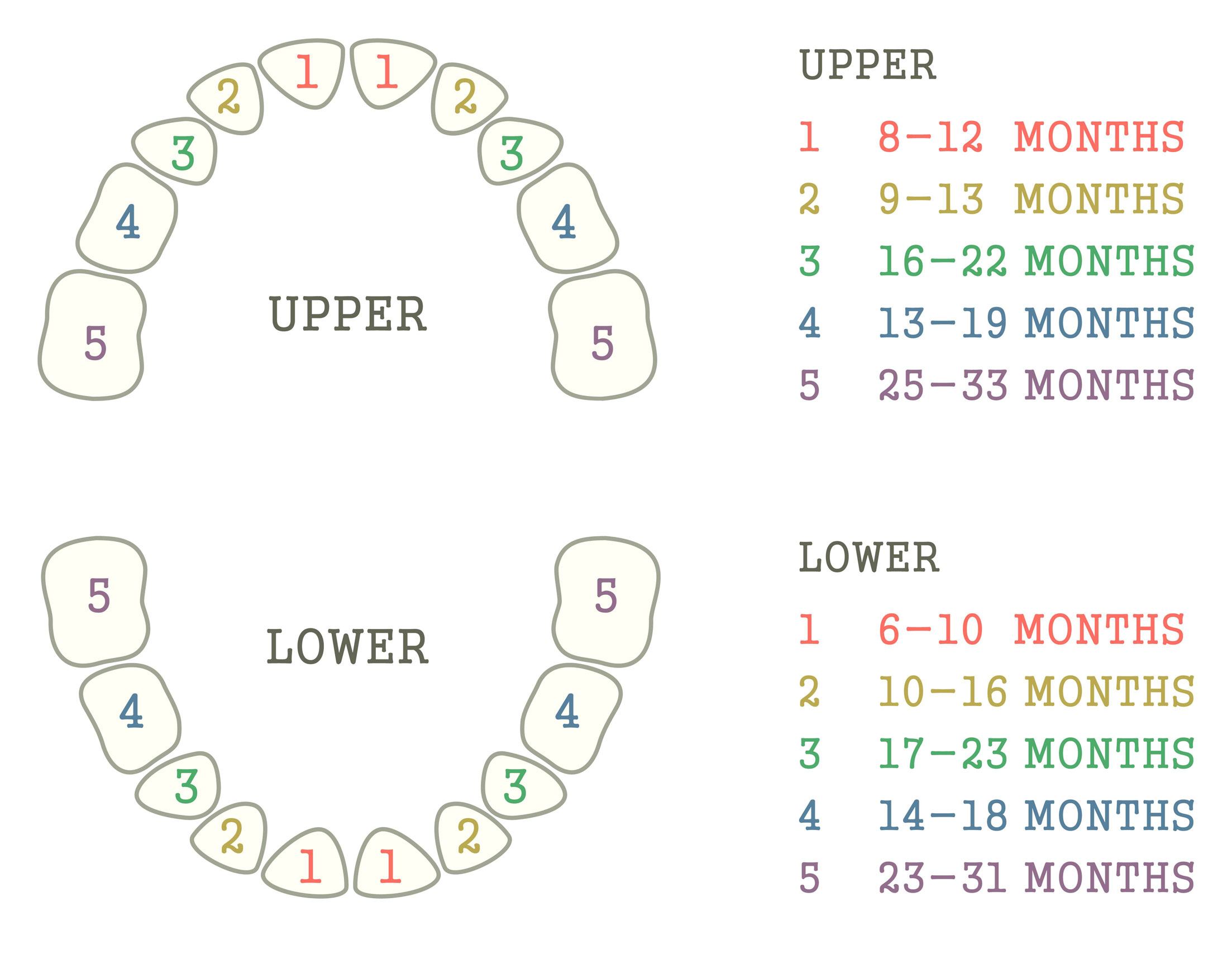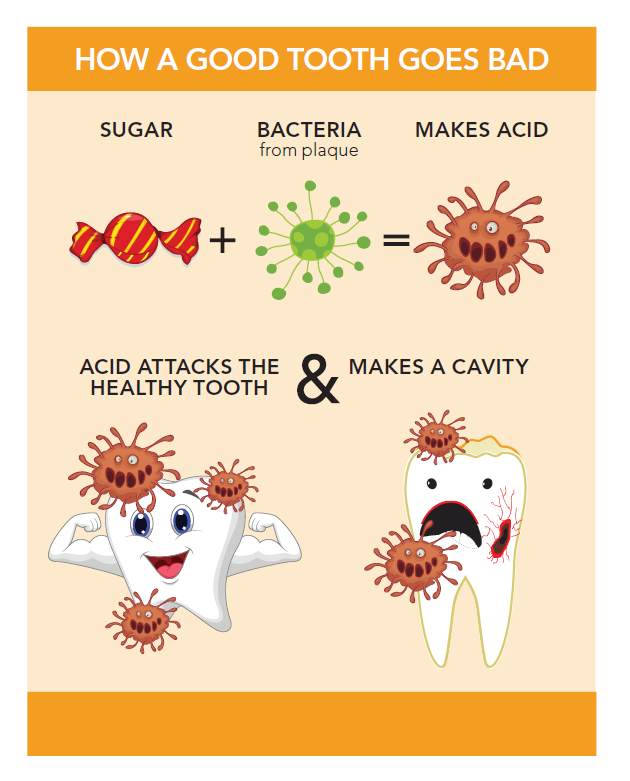This webpage has been adapted from five rack cards for accessibility. The page can be printed or you can request a copy of the rack card(s) by making a request through our contact page and we would be happy to provide it.
Baby Teeth are Important
You play an important role in caring for your child’s baby teeth.
- Starting at birth, wipe your baby’s gums with a clean damp cloth after feedings.
- Germs that cause cavities can be found in your mouth. Do not share utensils or toothbrushes as you can transfer these germs to your baby.
- Children do not need juice. Choose whole fruit or water instead of juice.
- Transition your child to an open cup by 12 months of age and avoid using sippy cups.
- Provide healthy foods and limit sugary snacks.
Lift the Lip

Right photo: A pea-size amount of toothpaste for children 3 years of age and older.
Babies can get cavities as soon as teeth appear. Help keep your baby’s teeth healthy!
- Wipe baby’s gums after each feeding with a clean damp cloth.
- Start brushing baby’s teeth as soon as the first tooth appears.
- Never put baby to bed with a bottle that has anything other than water.
- Avoid constant sipping of liquid other than water.
- Provide healthy foods and limit sugary snacks.
- A rice-sized grain of fluoridated toothpaste can be used if recommended by a dental professional or your local health unit. A pea sized amount can be used after the age of 3.
- Schedule your baby’s first dental visit by age 1.
Teething
Teething is a natural process of the teeth working their way through the gums. The first teeth normally appear between 6 and 10 months of age with the rest following over the next 2 to 3 years. This is only a guide because each child is different.
Common Signs of Teething
Teething can cause minor discomforts such as:
- increased drooling
- being more cranky and irritable
- showing a need to chew on things
- having red cheeks and red, swollen gums
Do not confuse teething with illness. Look for reasons other than teething if these occur:
- fever
- ear rubbing
- runny nose
- diarrhea
Supervise any use of teething aids.
To help your child through their teething discomfort:
- Keep a supply of damp, clean face cloths in the fridge for baby to chew on.
- Massage your baby’s gums with your clean finger or a baby washcloth.
- Offer a teething ring that contains only water, cooled in the refrigerator.
Things to avoid:
- Do not use teething gels or ointments. They contain medicines that may harm your baby.
- Do not give teething biscuits to your baby. They contain sugar and could also be a choking hazard.
When do primary teeth come in?

Snacking and Nutrition for Healthy Teeth
Sugary snacks can lead to cavities. Making good snacking choices helps prevent tooth decay. Eating healthy food is always a good choice for both oral health and general health.
- Choose nutritious, unsweetened snack foods.
- Read ingredient lists when choosing snacks. Molasses, honey, fructose, glucose and sucrose are all types of sugar.
- It is better to eat sweets at mealtime and not as snacks. The increased saliva flow during a meal dilutes sugars and helps wash them away.
- Reduce the time that sweet food stays in contact with the teeth. Limit sugared drinks and sugary snacks throughout the day.
- After your child eats sweet, sticky foods, brush your child’s teeth.
- If your child uses a bottle or sippy cup at nap time or at bedtime use plain water only.
- After teeth appear, frequent feedings at night and pooling of any liquid (except water) when saliva flow is at its lowest may increase the risk of early childhood cavities.
- Water is the best drink to keep your teeth and body healthy.
For Further Information
Call the Oral Health Program: (807) 625-5900
or toll-free at 1-888-294-6630